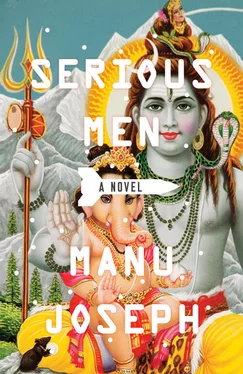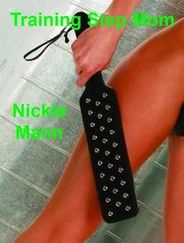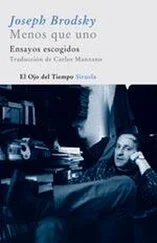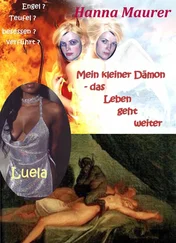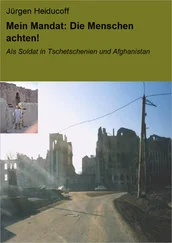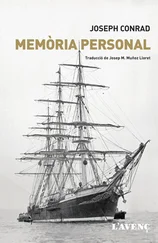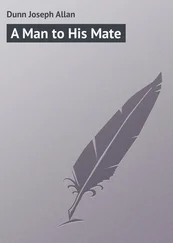The memory of Oparna too was no longer an open wound. To each other, he believed they had become endearing scars that in solitary moments would open the magical windows of remembrance. That was how he wanted her to remember their brief love. And this hope was reaffirmed when she walked into his room that Wednesday with such tranquillity and with the other deceptions of woman’s amnesia.
‘I called you to discuss the bad news from Boston,’ he said, rocking himself in the chair consciously to reassure her that it was not a tragic matter and that she should not be disappointed. ‘I believe you got a copy too?’
‘Yes,’ she said. ‘Sad, isn’t it.’
Boston University had confirmed that it had finished studying the sampler and had found no sign of life in it.
‘There are still two samplers and Cardiff will be getting back soon,’ he said cheerfully.
‘Let’s hope there is something interesting in them,’ she said, looking at her fingernails.
‘Let’s hope,’ he said, and looked at her fondly. ‘I was thinking, Oparna, Astrobiology has to be made one of the main streams in the Institute. What do you say?’
She said, in a somewhat lifeless way, that it was a good idea.
He mistook her response for the boredom that so often fills researchers after the excitement of a big project. The hired hands in her lab had been asked to leave, most of the equipment was shrouded in protective covers, and she was left alone in the basement once again with ghostly peons, and the uncertain wait for another worthy assignment.
‘You will be part of the faculty then?’ he asked pleasantly.
‘I don’t know,’ she said, and looked away.
That introduced a silence which ended with Oparna asking if there was anything else he wanted to discuss. When she was at the door, she turned to look at him for a passing moment. Just for an instant, he thought, they were once again in that abstract doorway of love where they did not know if they were reuniting or growing apart.
Their next meeting, three weeks later, was more grim. It was in the company of the Press Officer who wiped his forehead out of habit, even though he was not sweating. Cardiff too had said that the study of the two samplers was complete and no form of life had been detected. Acharya looked sombrely at Oparna, and then at the Press Officer, who straightened his back.
‘We have a moral obligation to go public with this news,’ Acharya said. ‘We have to state clearly that two external labs have detected nothing in the samplers.’
After the Press Officer left hurriedly to type out the release, Acharya and Oparna maintained a deep thoughtful silence that both of them understood as a form of professional conversation and not as the discomfort of defeated lovers.
Finally he said, ‘Considering the fact that Cardiff and Boston have not detected anything while we have, it is natural for people to question whether the sampler that was studied here was accidentally contaminated in the lab. I know such a thing could not have happened under your watch. But we must reassure people that our lab maintains the highest standards.’
Oparna nodded, but he could see that her mind was drifting.
He leaned forward and asked her with affection, ‘I hope you are not disappointed with the news from Cardiff?’
‘I am not,’ she said.
‘I am,’ he said. ‘But this is just the beginning. We are going to send many, many balloons up there. And all those things that are falling down, we are going to trap them in our samplers and show beyond any dispute that there are aliens among us.’
Oparna rose from her chair and went around the desk to his side. She held his face with her two warm hands and kissed him on his forehead. She had the peace of a mourner. There was something morbid about her face. It looked as if he had died and she was bidding him farewell. He felt a stab of such a cold fright that he thought of Lavanya, and wanted to complain to her that he was dead.
MANY YEARS LATER, several scientists would still recall that Tuesday morning with the minute details of where they were and what they were doing when they first heard the news, like the word of an assassination freezes the memory of a whole generation.
Jana Nambodri was with his usual company of radio astronomers when the phone rang. He held the receiver to his ear, and after making the first perfunctory noises he listened speechless. The radio astronomers, greatly dispirited after the failed mutiny to erect Search for Extraterrestrial Intelligence as an autonomous department, gathered in Nambodri’s office more often than before with lament masquerading as hopeful conspiracy. That morning, there were six of them, including Nambodri, in the room.
It was the portly professor called Jal, with a Gorbachev bird-dropping stain on his bald head, who first noticed that Nambodri’s hand was trembling. Jal nudged others to look at their ringleader. Nambodri’s left hand, which was holding the receiver, was shaking, and his right was drawing concentric circles on a discarded envelope. He finally said into the phone, ‘This is … I don’t know what to say … This is unbelievable.’ He put the phone down and stared blankly.
‘What’s happened?’ Jal asked.
‘I can’t tell you,’ Nambodri said. ‘You’ve had a bypass.’
‘Tell me, Jana. What happened?’
Nambodri, whose mind had not fully returned from the phone call and the train of thought it had inspired, banged the table with his fist, and winced.
‘Stupid girl. Stupid girl,’ he said. Then he stormed out of his room, into the long corridor. Halfway down, he turned and looked at the door that said ‘Director’. Even to the unpoetic mind of Nambodri, the austere wooden door was beginning to resemble the lid of a coffin.
Ayyan Mani looked at the courier letter on his table that the morose peon had dropped, as he always did, like a grievance from his heart. It was an unremarkable courier letter from the Ministry of Defence, and Ayyan knew he was going to open it. He looked furtively to his right, in the direction of Acharya’s door, and to the left where the main entrance was. The letter was from Basu.
Dr Arvind Acharya,
This is to inform you of an extraordinary development. We have a letter with us from Dr Oparna Goshmaulik, Head of the Astrobiology lab and the project coordinator of the Balloon Mission. We have independently verified with Oparna that she was, in fact, the author of the letter. She has declared, with a detailed chronology of the events, that she was pressurized by you into contaminating the contents of one sampler with the purpose of claiming that microscopic life has been detected at the improbable altitude of 41 kilometres above the Earth.
She has claimed that when she first informed you that no life had been detected in the sampler, you instructed her to contaminate it and fabricate a report. And that you threatened her with severe professional consequences if she did not go with the flow. Taking moral responsibility for her actions, she has offered to resign. This is an extraordinary allegation and I’ll be in the Institute on Wednesday, by noon, to see how we can resolve this. I’ll be joined by an empowered committee for an internal inquiry into the matter. All senior faculty of the Institute have been instructed to be available to be called upon. You are hereby asked to present yourself before the empowered committee.
Bhaskar Basu
Only after he had read the letter twice did Ayyan realize that he was standing. A corner of the letter was quivering in the breeze of the air conditioner. It was as if the note were shaking in the first tremors of the news. He sat down and repaired the letter with the supply of official envelopes he had in the bottom drawer. He tried to recall when he had last felt this familiar fear in his heart which was a cruel mix of sorrow and anticipation. As he entered Acharya’s room, Ayyan recognized the fear. Many years ago, when he had to wake up the aged father of a friend to inform him that his only son had drowned in Aksa, he had felt this way, as if his heart were turning into ice. He put the letter on Acharya’s desk.
Читать дальше
